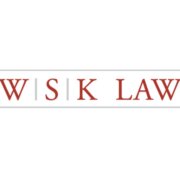Best Antitrust Litigation Lawyers in Cambridge
Share your needs with us, get contacted by law firms.
Free. Takes 2 min.
List of the best lawyers in Cambridge, Canada
Canada Antitrust Litigation Legal Articles
Browse our 1 legal article about Antitrust Litigation in Canada written by expert lawyers.
- Canada Competition Act Updates: Risks for Foreign Investors
- Lower Intervention Thresholds: The Competition Bureau can now challenge mergers that significantly lessen competition even if they do not create a total monopoly. Global Revenue Penalties: Violations may result in administrative monetary penalties (AMPs) of up to 10% of a company's worldwide gross revenue or three times the benefit derived... Read more →
About Antitrust Litigation Law in Cambridge, Canada
Antitrust litigation in Cambridge, Canada, is focused on upholding fair competition and preventing anti-competitive practices within the marketplace. Canadian antitrust law, often referred to as competition law, is governed at the federal level but is applicable locally within Cambridge and throughout Ontario. The Competition Act is the primary legislation that regulates business behaviors to restrict practices such as price fixing, monopolies, bid-rigging, and abuse of dominant position. Violations of these laws can lead to significant legal actions, including civil litigation or criminal prosecution. Antitrust litigation generally involves legal proceedings initiated by private parties, businesses, or government authorities who seek remedies or penalties for breaches of competition rules.
Why You May Need a Lawyer
Antitrust litigation is a complex area of law involving intricate economic analysis, regulatory compliance, and understanding of detailed legal precedents. You may require a lawyer in situations such as:
- Suspecting your business is the victim of unfair competition or anti-competitive practices
- Receiving notice of investigation from the Competition Bureau
- Being accused of price fixing, bid-rigging, or abuse of dominance
- Merger reviews and navigating approval processes for business acquisitions or joint ventures
- Compliance advice to avoid breaching competition laws
- Defending your business in class action lawsuits alleging antitrust violations
- Wanting to file a complaint against a competitor for suspected anti-competitive conduct
A qualified antitrust lawyer can provide guidance, represent you in court, deal with government authorities, and help protect your interests in these complex matters.
Local Laws Overview
In Cambridge, antitrust litigation is primarily governed by federal law, mainly the Competition Act. This Act is enforced by the Competition Bureau, a federal agency with powers to investigate and address anti-competitive conduct. Key aspects of the law include:
- Cartel Offences: Criminalizes agreements between competitors to fix prices, allocate markets, or restrict output.
- Abuse of Dominance: Prevents firms with market power from engaging in practices that harm competition or exclude rivals.
- Merger Review: Certain mergers and acquisitions are subject to review to prevent substantial reduction of competition.
- Misleading Advertising: Prohibits deceptive marketing practices that mislead consumers or competitors.
- Private Actions: Individuals or businesses harmed by breaches of competition law may pursue civil litigation to recover damages.
In Ontario, the provincial courts handle civil antitrust cases, while criminal matters may proceed federally. Due to the technical and evolving nature of these laws, expert legal advice is highly recommended.
Frequently Asked Questions
What is antitrust litigation?
Antitrust litigation refers to legal proceedings involving disputes over anti-competitive business conduct, such as price fixing, bid-rigging, abuse of market dominance, or misleading advertising. These cases can be brought by the government or private parties affected by the alleged conduct.
What laws govern antitrust litigation in Cambridge, Canada?
The main law is the federal Competition Act, enforced by the Competition Bureau. This law and related regulations apply throughout Canada, including Cambridge, Ontario.
Who enforces antitrust laws in Cambridge?
The Competition Bureau is the federal agency responsible for enforcing competition laws. For civil claims, local Ontario courts can also hear antitrust cases.
Can individuals or businesses file an antitrust lawsuit?
Yes, private parties who suffer loss or damage due to anti-competitive conduct can initiate civil actions in court to seek damages or other remedies.
What are common examples of anti-competitive conduct?
Examples include price fixing between competitors, bid-rigging, market division agreements, abuse of dominance, monopolistic practices, and misleading representations to consumers.
What should I do if I suspect anti-competitive conduct?
Contact a lawyer with experience in antitrust law. You may also file a complaint with the Competition Bureau for investigation.
What penalties exist for breaching the Competition Act?
Penalties range from financial fines and damages to criminal charges, which can result in imprisonment or probation for individuals involved.
How long does antitrust litigation typically take?
The timeline varies depending on case complexity but can range from several months to multiple years, especially if appeals are involved.
Are there any exemptions or defences to antitrust violations?
Certain regulated business activities may have exemptions. Various legal defenses may also be available, such as lack of intent or absence of competitive harm.
Do mergers require approval under Canadian competition laws?
Certain large mergers must be reviewed by the Competition Bureau to ensure they do not substantially lessen competition. Legal advice is advised before proceeding with significant business deals.
Additional Resources
For those seeking more information or assistance in Cambridge, consider these resources:
- Competition Bureau Canada: Federal agency responsible for investigating and enforcing antitrust laws, offering guidance for businesses and consumers.
- Ontario Ministry of the Attorney General: Provides general legal resources and information on court procedures in Ontario.
- Local Law Societies: Law Society of Ontario offers lawyer directories, complaint procedures, and consumer resources.
- Canadian Bar Association: Offers information on competition law and lawyer referral services.
- Pro Bono Ontario: Free legal advice for qualifying individuals facing business law issues, including competition law concerns.
Next Steps
If you believe you are involved in or affected by antitrust issues in Cambridge, Canada, it is wise to consult with a qualified antitrust lawyer as soon as possible. Here’s how to proceed:
- Document all relevant facts, communications, and evidence related to your situation.
- Contact a local lawyer with experience in competition and antitrust law for an initial consultation.
- Consider filing a complaint with the Competition Bureau if you suspect anti-competitive practices.
- Prepare your questions or concerns in advance for your legal consultation.
- Follow all legal advice provided and ensure you comply with any investigation or litigation requirements.
Taking prompt action with competent legal representation can help protect your rights, mitigate risks, and achieve a favorable resolution to your antitrust matter.
Lawzana helps you find the best lawyers and law firms in Cambridge through a curated and pre-screened list of qualified legal professionals. Our platform offers rankings and detailed profiles of attorneys and law firms, allowing you to compare based on practice areas, including Antitrust Litigation, experience, and client feedback.
Each profile includes a description of the firm's areas of practice, client reviews, team members and partners, year of establishment, spoken languages, office locations, contact information, social media presence, and any published articles or resources. Most firms on our platform speak English and are experienced in both local and international legal matters.
Get a quote from top-rated law firms in Cambridge, Canada — quickly, securely, and without unnecessary hassle.
Disclaimer:
The information provided on this page is for general informational purposes only and does not constitute legal advice. While we strive to ensure the accuracy and relevance of the content, legal information may change over time, and interpretations of the law can vary. You should always consult with a qualified legal professional for advice specific to your situation.
We disclaim all liability for actions taken or not taken based on the content of this page. If you believe any information is incorrect or outdated, please contact us, and we will review and update it where appropriate.










